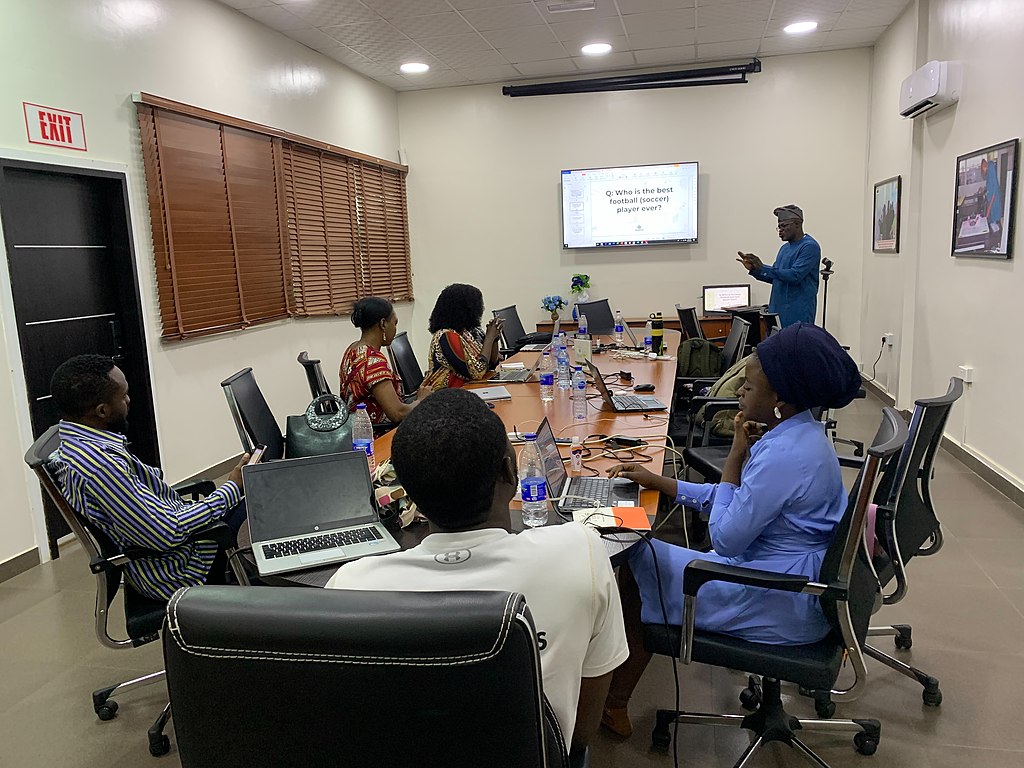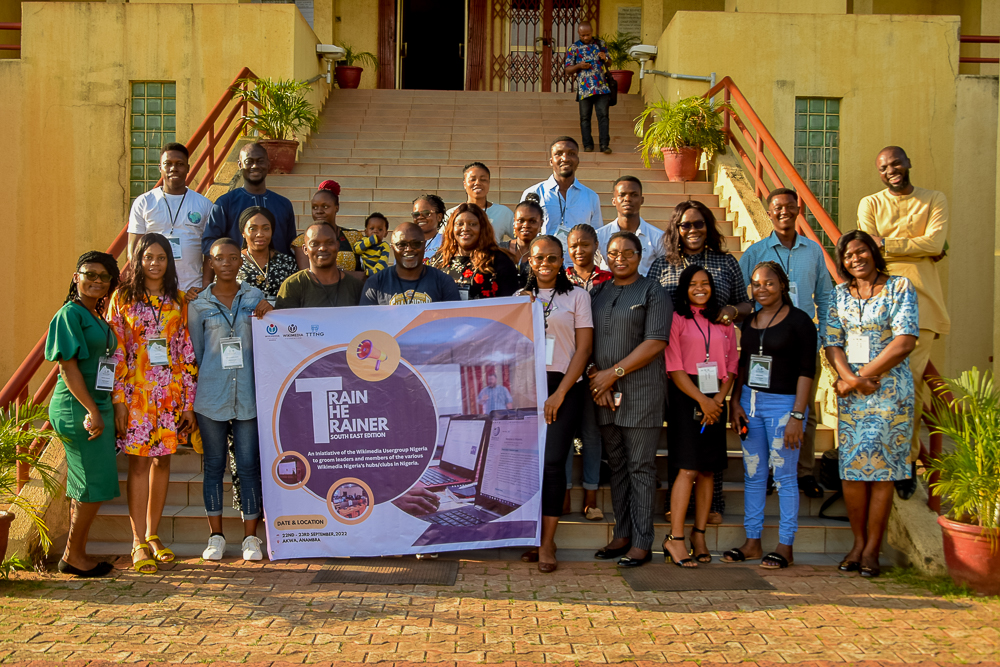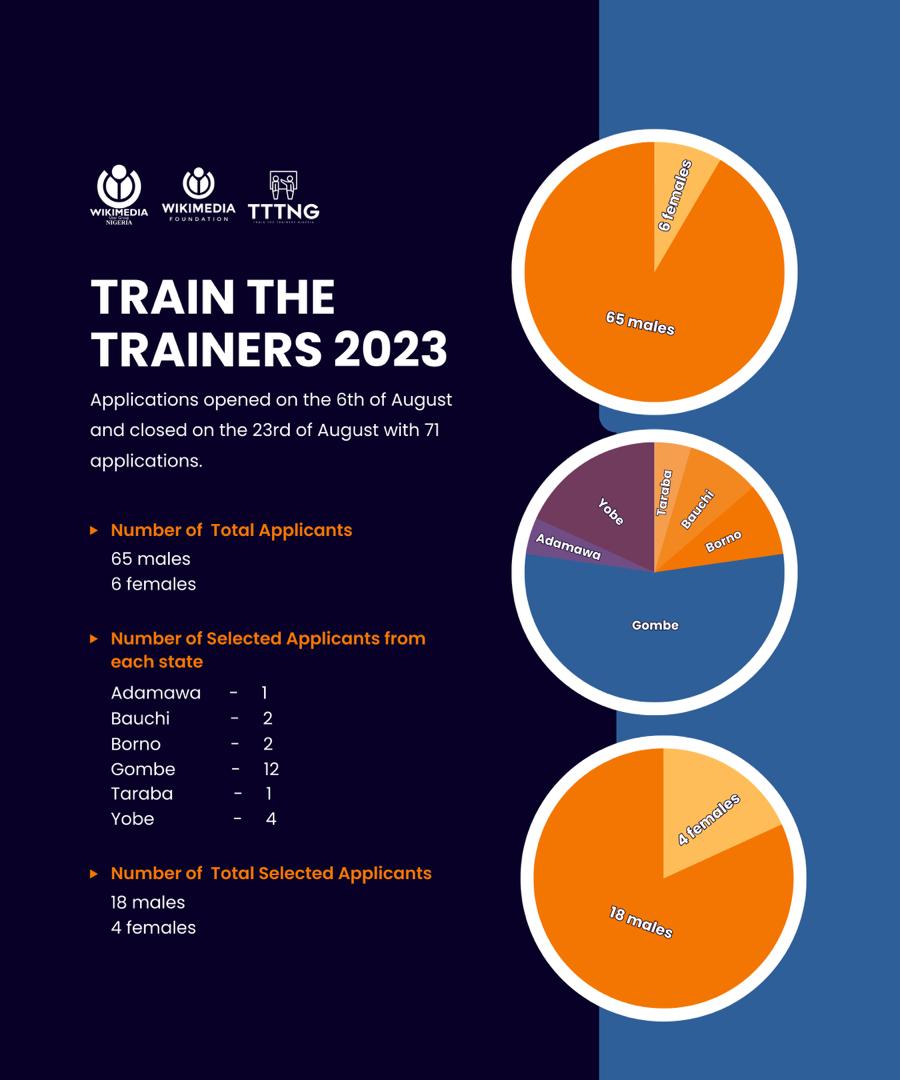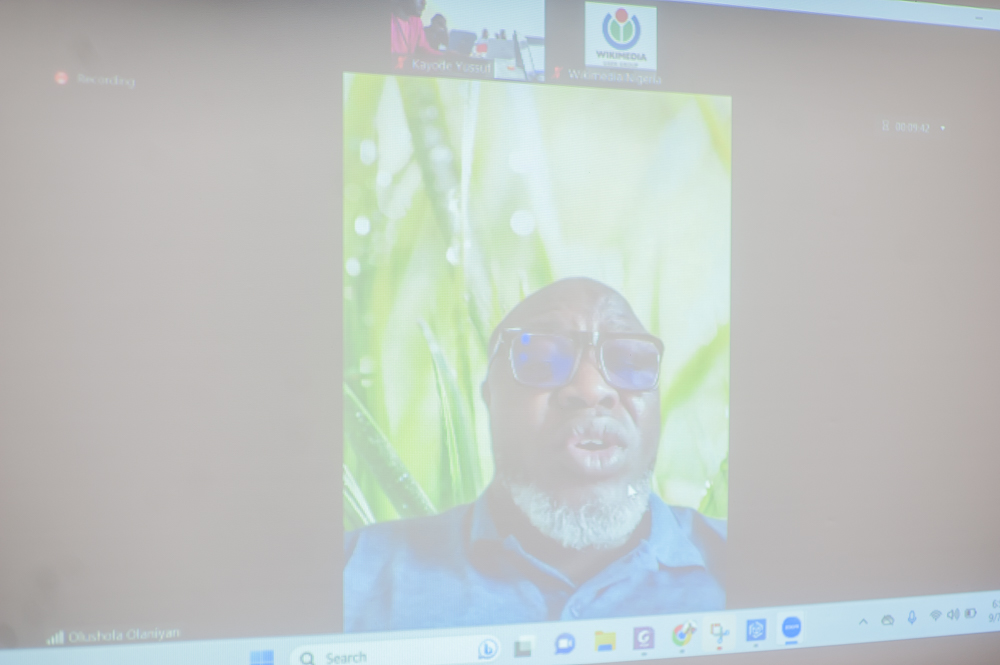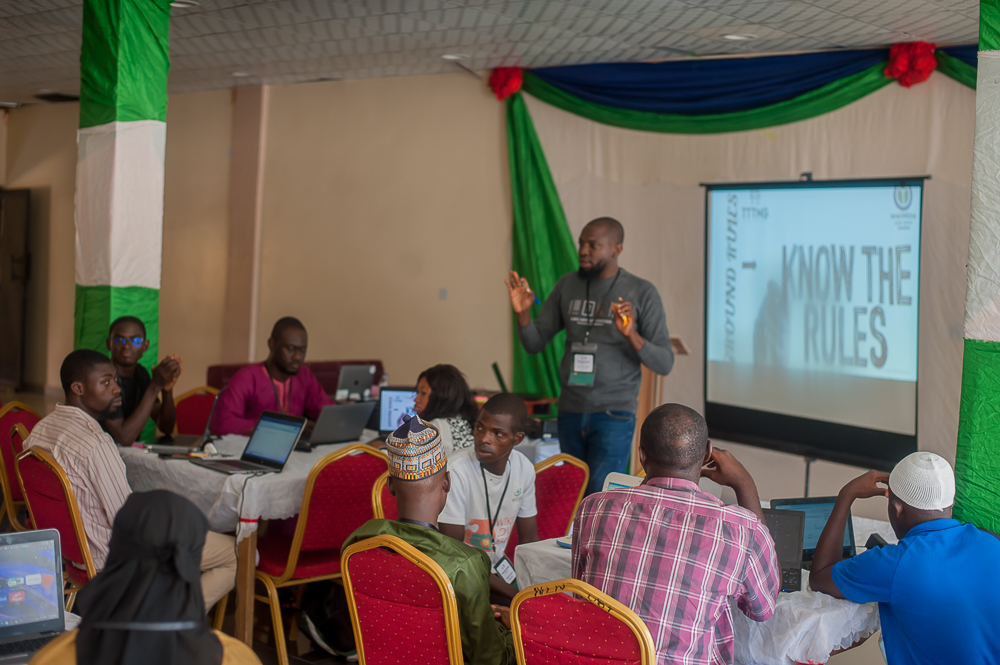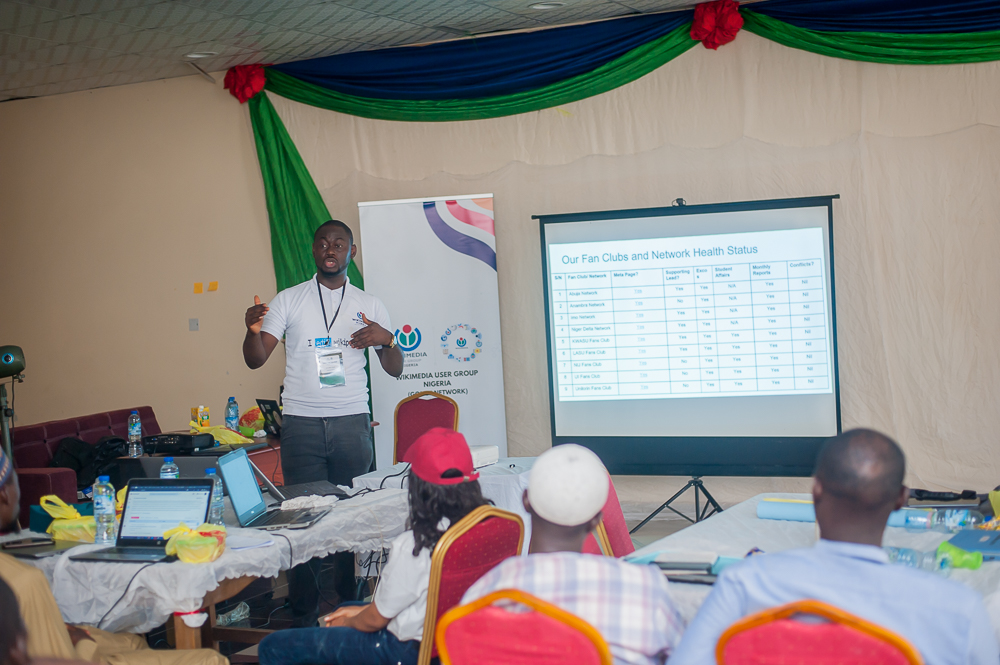The Wikimedia Usergroup Nigeria, a registered Wikimedia affiliate since 2015, recently concluded its 3rd Train the Trainer Program (TTT) in Nigeria. This initiative aligns with the user group’s 2022 movement strategy discussion recommendation, which emphasizes “investment in skills and leadership development” for Nigerian editors. The TTT program aims to enhance soft skills and leadership abilities among Wikimedia contributors in Nigeria.
The Train the Trainer program began with its inaugural session in Abuja on June 28, 2022, a one-day event designed to address challenges faced by contributors to Wikimedia projects. The one-day event was meticulously planned to create an ideal platform for contributors to improve their skills and leadership abilities. The success of this test run was a testament to its effectiveness, and we immediately set to work on the next iteration of the program, which was held in September 2022.
The comprehensive 2nd iteration of the Train the Trainers (TTT) was held on September 22nd and 23rd, 2022, in Awka, Anambra State brought together 20 editors from the southeastern states of Nigeria, providing them with a unique opportunity to learn, share their experiences, knowledge, and skills in contributing to Wikimedia projects. The participants engaged in various activities, including practical training on how to use various Wikimedia tools. The program was highly interactive and engaging and left the participants with a renewed sense of enthusiasm and a clear understanding of how to apply their newfound knowledge and skills. The success of the TTT program has paved the way for future iterations of the program.
Recognizing the diversity and vastness of Nigeria, with a population exceeding 200 million spread across 36 states, the TTT program was strategically divided into six zones corresponding to the country’s six geographical regions. This approach is prioritized by providing training to one geographical zone each year, ensuring that every region receives the necessary attention. The sequencing of the TTT program has been strategically planned to ensure that each region receives adequate training, and the current order has been North Central, South East, and now North East, with the third iteration scheduled for 2023.
This approach ensures that the TTT program reaches every part of Nigeria and provides opportunities for trainers to develop their skills and knowledge.
TTT 2023 banner for finding new host
In preparation for the 2023 TTT program, the user group announced an open bid to host the event on June 1, 2023, with applications closing on June 23, 2023. This bid process aimed to determine which zone was interested in hosting and why. The application form included questions such as specific topics or areas within Wikimedia projects that applicants wanted to learn or master and significant Wikimedia challenges in their zone. After reviewing 14 applications, two zones, North West (Kaduna) and North East (Gombe), were shortlisted. Based on various considerations, including hosting feasibility, the user group chose North East, with Gombe as the host state.
Subsequently, the applications opened for Wikimedians in North East Nigeria from August 6, 2023, to August 23, 2023. The selection process resulted in 71 applications, with six females and 65 males. All female applicants were selected to encourage female participation, resulting in 4 females and 18 males being chosen. The final group consisted of 22 Wikimedians from 6 states in North East Nigeria.
The TTT (Train the Trainer) program, held in Gombe, a city located in the North East region of Nigeria, was a comprehensive two-day training aimed at developing the capacity of Wikimedia volunteers to effectively conduct outreach programs in their respective states. The program was designed to provide participants with the necessary knowledge and skills to create and deliver impactful training sessions. The program was facilitated by three representatives of the Wikimedia User Group Nigeria (WUGN) – Ayokami Oyeyemi, Kayode Yusuf, and Ashioma Medi, who were present in person. The participants had the opportunity to learn from experienced trainers and acquire practical techniques to enhance their outreach programs.
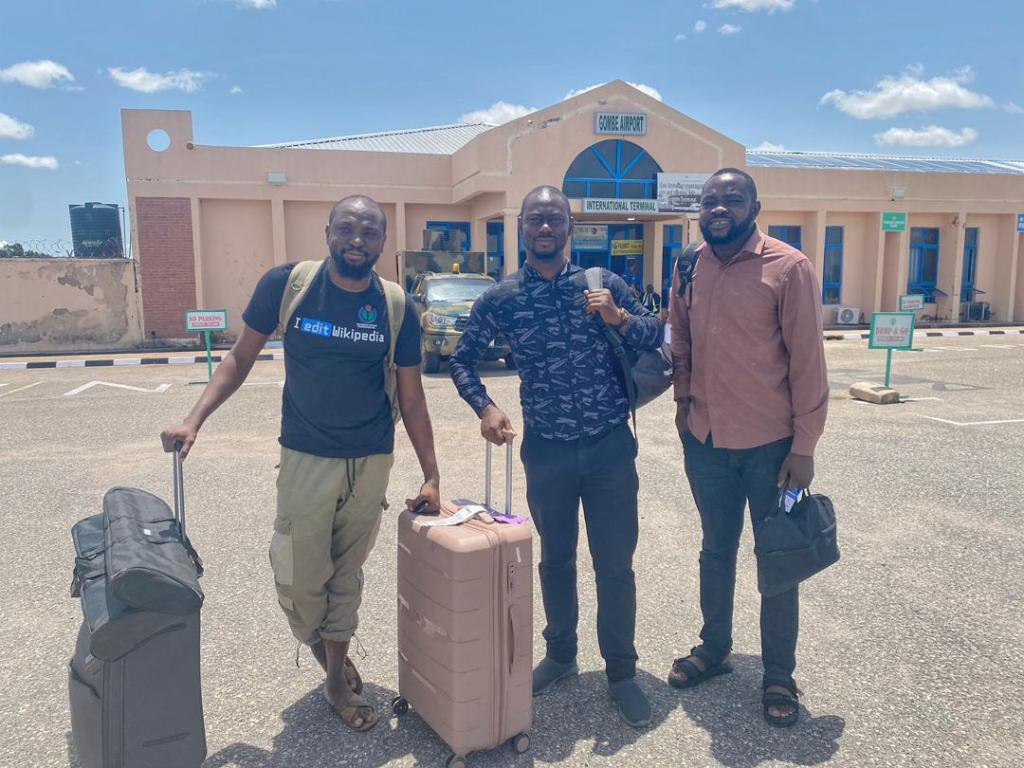
The program covered various essential topics:
Day 1
On the first day of the program, participants were given an introduction that outlined the program’s objectives and expectations. Olaniyan Olushola delivered a welcome address virtually, sharing his insights on the value of the program and offering words of encouragement to all participants.
It then featured discussions on the Neutral Point of View (NPOV) concept in editing Wikipedia articles. This concept was crucial to ensuring that articles were written from a neutral perspective and were free from bias. Participants learned about the significance of NPOV, its practical implications in editing Wikipedia articles, and observed examples of NPOV in action.
Finally in rounding off the first day, it included skill-sharing sessions, where participants had the opportunity to share their knowledge and expertise with others. These sessions covered a range of topics and provided a forum for participants to learn from one another, collaborate, and build their skills.
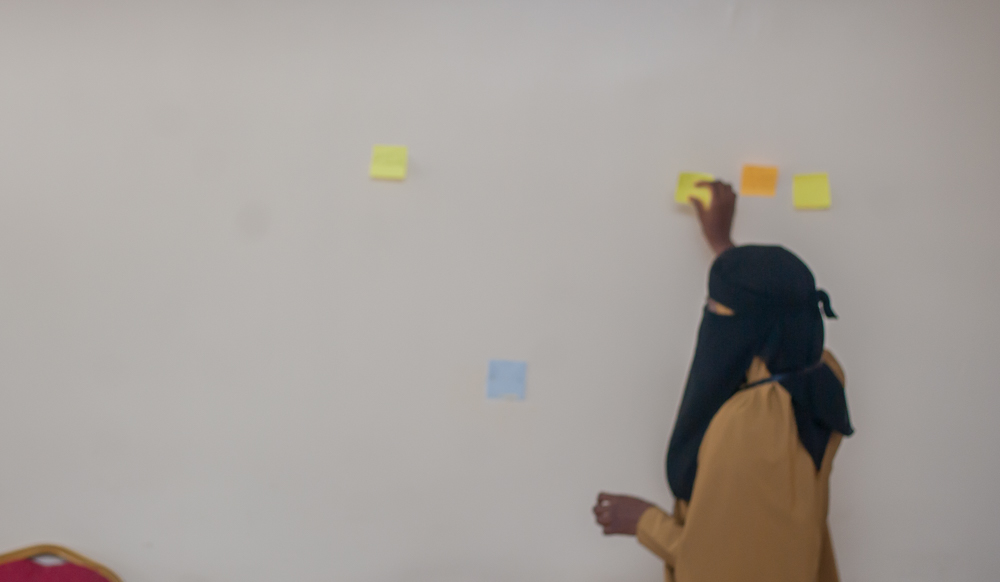
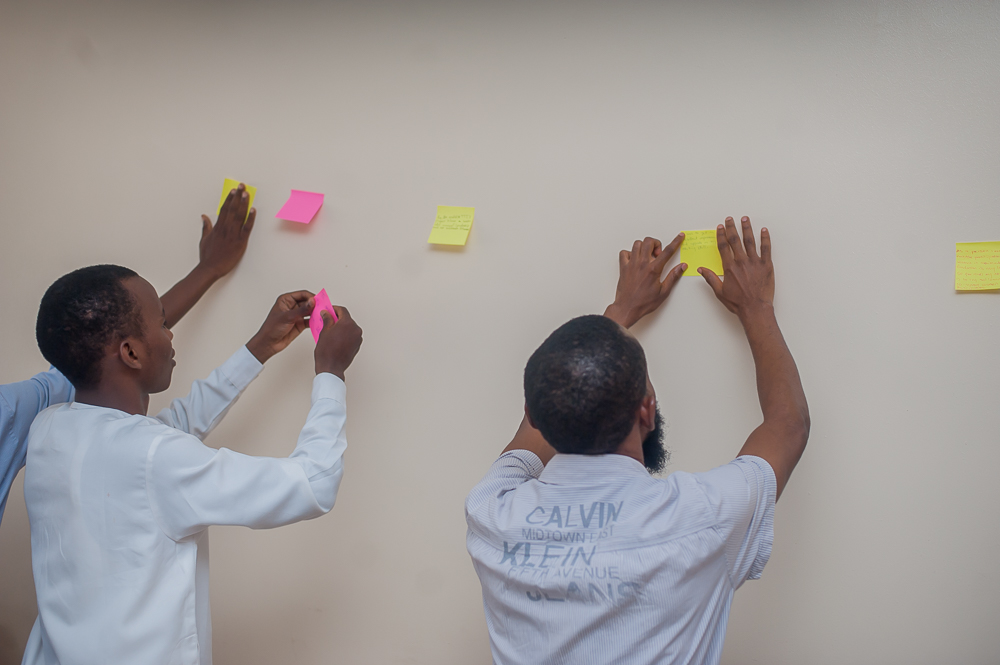
Day 2
The second day of the event was filled with informative sessions and engaging activities. It started with a comprehensive training session on navigating contributions on English Wikipedia (enwiki) and advancing up the editing ladder. Attendees received useful tips and tricks on how to conduct successful edit-a-thons and access grants for their projects. They also discussed project management in detail, providing valuable insights into how to effectively manage their projects.
In addition to the training sessions, the day included leadership and teamwork development activities designed to help attendees enhance their skills and foster teamwork. The activities were interactive and engaging, allowing attendees to learn from each other and develop their skills in a fun and collaborative environment.
Later in the day, attendees went on a sightseeing excursion to the Zoological Garden of Gombe State University. The visit provided a needed break from the training sessions and allowed the attendees to relax and enjoy the beautiful surroundings.
Overall, the second day was a great success, and the attendees left feeling motivated and inspired to make a positive impact in their communities.
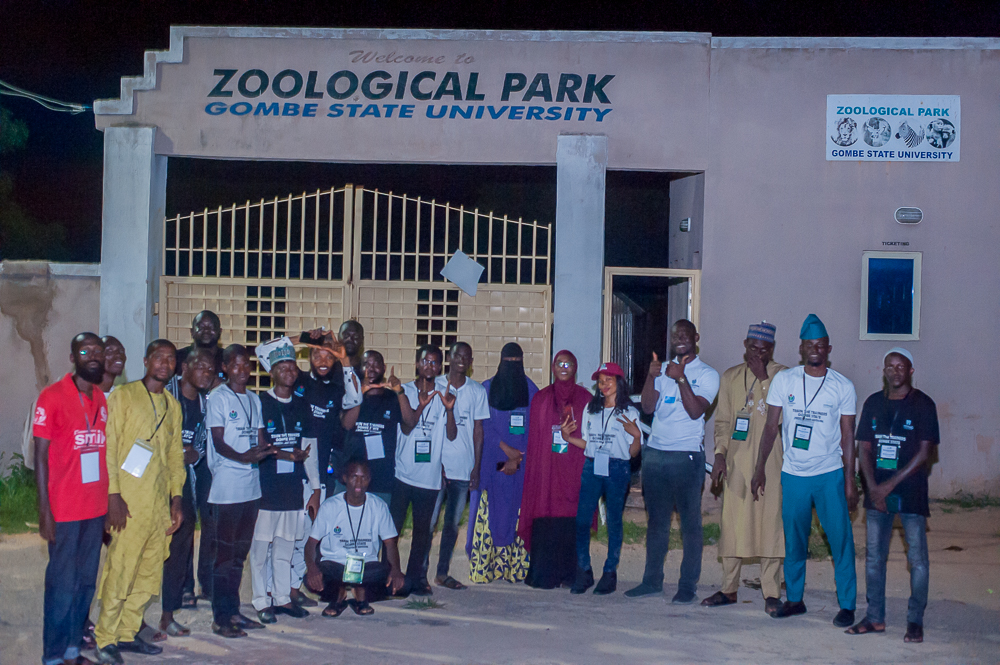
Post-Event Survey
After the TTT program was conducted, the user group carried out a comprehensive survey to evaluate the effectiveness of the training and gather feedback on individual training and development activities during the workshop. The survey results were analyzed in detail to derive insights and identify areas for improvement. The participants’ feedback was overwhelmingly positive, with key findings indicating the effectiveness of the TTT program in enhancing the participants’ skills and knowledge. The participants appreciated the engaging and interactive training activities, and they found the materials provided to be relevant and useful, making it easier for them to learn and apply the concepts:
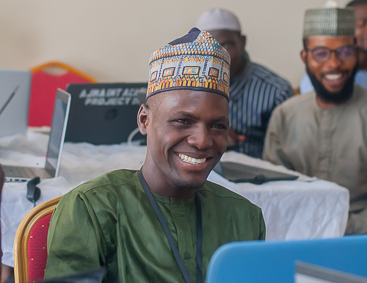
- Overall Rating – The program received a high satisfaction rating with a perfect score in meeting participants’ expectations. According to the survey respondents, the workshop provided value and fully met their expectations. An overwhelming majority of 90 percent said they would recommend TTT to other Wikipedians. When asked about their main takeaways, Ibrahim Salisu stated “that the event was both enjoyable and informative, offering a great opportunity for learning more about Wikimedia projects and fostering connections through presentations, games, and interactive sessions. Overall, it was a fantastic and educational experience.”
- Strong enthusiasm and a sense of connection among participants – In the survey, participants were asked which aspects of the training were most useful or valuable to them. The majority expressed a strong preference for the games and group activities, as they felt these had the greatest impact. They found that these activities helped them connect with one another through teamwork and collaboration.
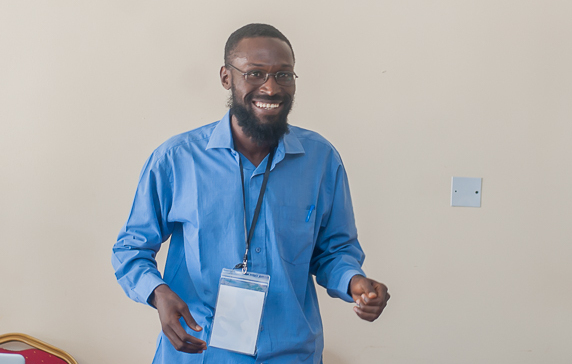
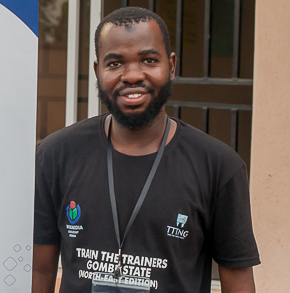
- New Learnings – “I thought I knew everything as an experienced editor on enwiki with thousands of edits, but the TTT experience taught me so many new things, especially about the Neutral Point of View. It was like I had never heard of it before. Thank you WUGN,” said Ibjaja055, an active English Wikipedia editor. During the two-day workshop, most participants learned new things about topics they had never heard of before and also received a refresher on things they know. The question, “Did you learn new things from the TTT workshops?” received an average rating of 90 percent.
At WUGN, our goal for the TTT is to introduce participants to a wide range of topics. We organized sessions on various themes, including navigating enwiki policies, running edit-a-thons, leadership, presenting with impact, building virtual communities, and more. Our aim is to ensure that every participant gains something valuable from each session.
- Follow up Session – After conducting the training session, we received feedback from the participants. 85 percent of them have expressed their interest in attending a follow-up session in the coming months. However, 15 percent of the participants stated that they did not feel the need for any further training. Considering the feedback received, WUGN has decided to organize the follow-up training session virtually. We have also decided to continue the WhatsApp group to ensure proper follow-up and continued engagement with the participants. This will allow them to stay connected with each other and continue their learning even after the training session has ended.
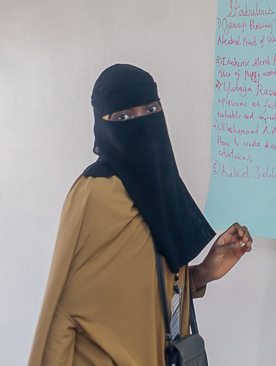
- Feedback on various sessions – One of the participants shared their thoughts about the sessions and said that they found all of them to be excellent. They appreciated the fact that different aspects of Wikipedia editing were covered, such as how to edit without encountering any problems, how to apply for grants, what makes an accomplished editor, and Wikimedia Commons. The participant felt that the organizers had managed to include a bit of everything to match everyone’s taste. They also mentioned that each session gave a lot of energy to the Wikipedians, and expressed their gratitude for the opportunity to attend. “Group Activities” and “Important Tools for Navigating Editing” were the most liked sessions. In addition, Ayokanmi’s session on “Desirable Attributes for Accomplished Wikipedia Editors” was among the highest-ranking sessions, with attendees noting the valuable insights gained from the discussion. Finally, Kayode’s “Leadership Perspective” session provided attendees with a unique perspective on leadership, leaving a lasting impression on those who participated. Overall, these sessions were a great reminder of the importance of continuous learning and development in both personal and professional endeavors.
- Fully residential – 65 percent of the participants expressed their preference for all attendees to stay in the same hotel to ensure timely arrival and to avoid any potential delays. However, the remaining 35 percent did not see the need for such an arrangement. It’s worth noting that the program was initially designed to have participants from the host city commute from home, and this feedback will be taken into consideration to improve the program in the future to better meet the needs and preferences of all participants.
- Recommendation to other Wikimedians – After participating in the TTT program, 95% of the volunteers who are part of the Wikimedia community expressed that they would highly recommend the program to their peers. This feedback indicates that the majority of participants were satisfied with the TTT program and found it valuable.
WUGN’s Findings
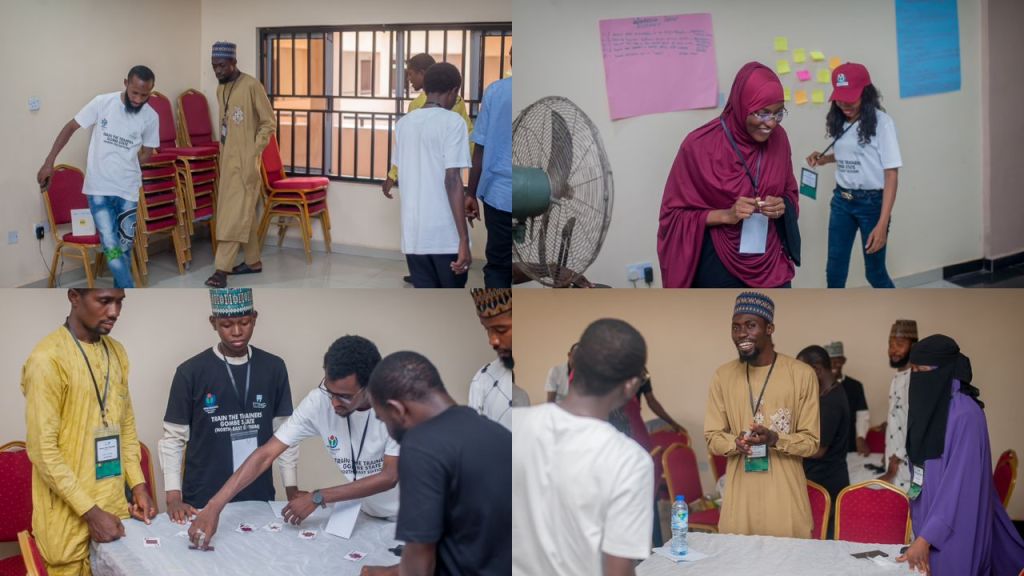
All participants unanimously suggested that WUGN continue this program in the future and offered suggestions to improve it next time:
- Organize more group activities – Throughout the duration of the program, numerous group activities were organized and the majority of the participants expressed their appreciation for these engaging activities. Many felt that the inclusion of these activities added an extra layer of beauty to the program and as a result, they have requested that more activities like that be incorporated in any future program offerings.
- Prioritizing and engaging more female participants– The number of female participants who applied for the event was significantly low, accounting for only 10% of the total number of participants. This gender imbalance resulted in a heavily skewed gender ratio, with the male participants greatly outnumbering the female participants.
- Extend the training to 3 or 4 days – Based on the post-training evaluation, it was found that many participants were dissatisfied with the duration of the training program. They opined that the two-day training session was not enough to cover the material comprehensively. The majority of the participants suggested that a longer training session would have been more beneficial as it would have allowed them to gain a more in-depth understanding of the subject matter.
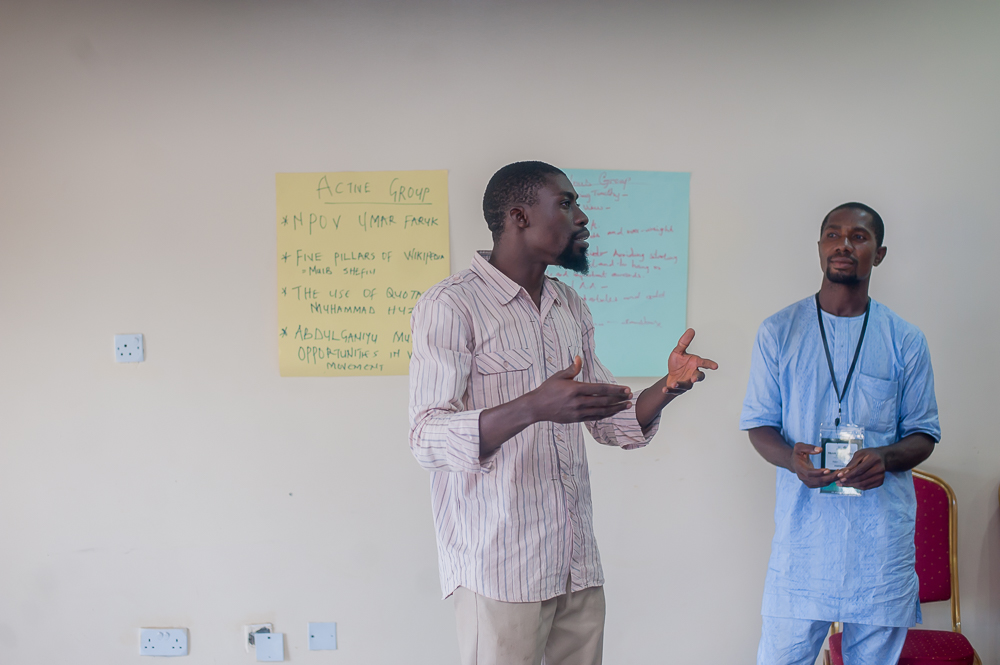
- Provision of edit ladder for proper follow-up– Several participants have suggested that WUGN should introduce an edit ladder that evaluates their performance on a monthly basis and recognizes their contributions appropriately. The proposed edit ladder would allow WUGN to monitor their progress and receive recognition for their hard work. This would not only encourage them to keep participating but also promote a more involved and cooperative community.
- Create a peer to peer mentoring program – During the TTT event, one of the participants suggested a way to make learning more effective and impactful. The idea was to pair up less experienced participants with more experienced ones, so that they can learn from each other and share their experiences. This approach can help to break down barriers and allow volunteers to get to know each other better. This, in turn, can build stronger relationships, facilitate better learning opportunities, and create connections within the community.
Conclusion
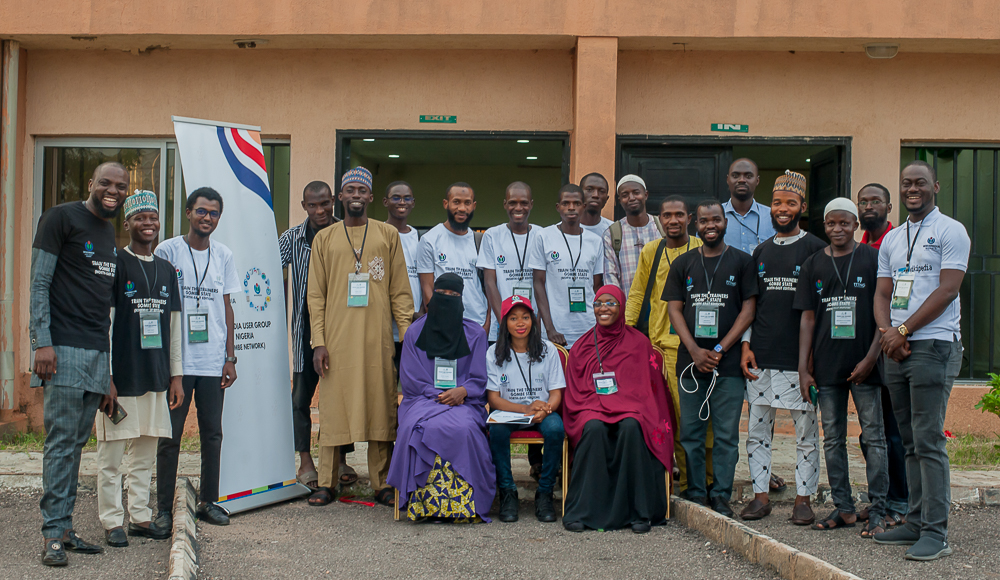
In conclusion, The Train the Trainer Program organized by the Wikimedia Usergroup Nigeria has shown its dedication to enhancing leadership and skills among Nigerian editors. The positive feedback received from participants indicates that the program has been successful and has the potential for future growth and improvement. The user group is planning to incorporate the valuable suggestions and ideas from participants into future TTT programs, ensuring continuous growth and development within the Wikimedia community in Nigeria. Keep an eye out for updates on upcoming TTT programs from Wikimedia UG Nigeria.
Ayokanmi Oyeyemi, Wikimedia UG Nigeria

Can you help us translate this article?
In order for this article to reach as many people as possible we would like your help. Can you translate this article to get the message out?
Start translation
